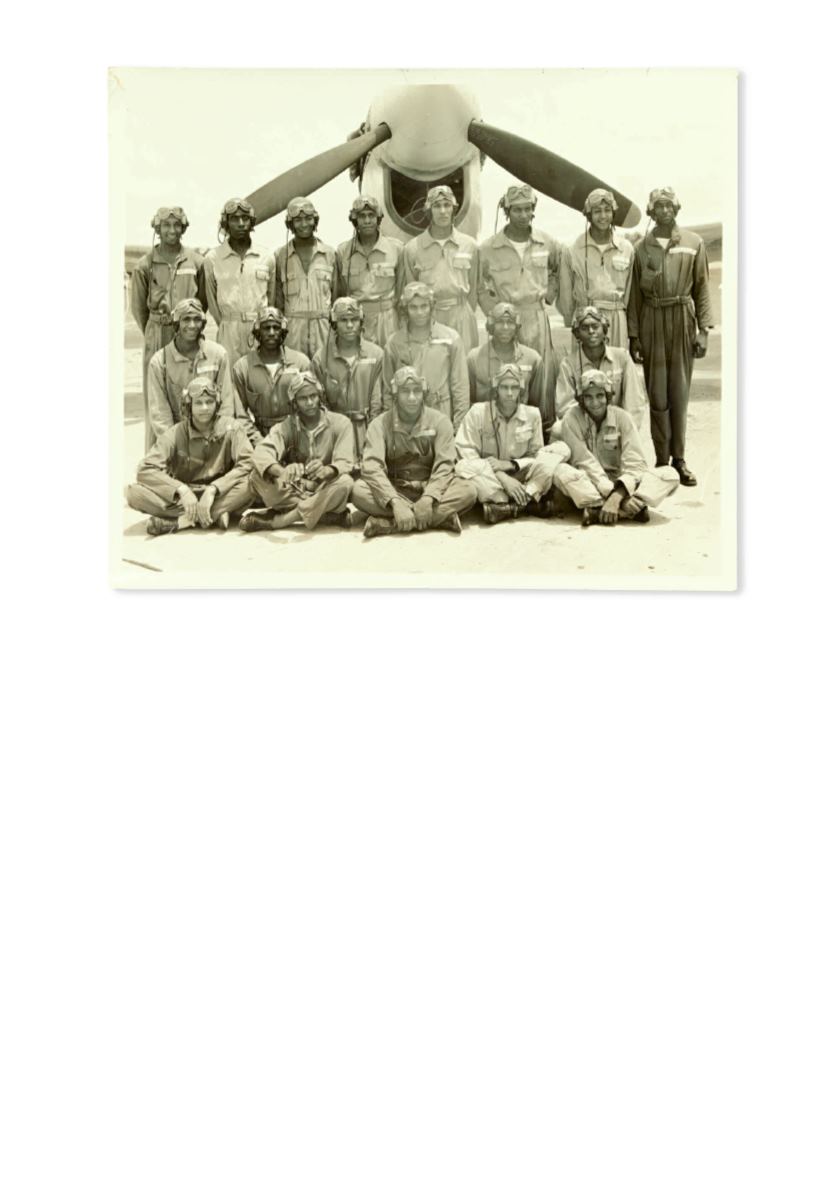

newsletter, a rather home-made mimeographed piece, printed on highly acidic paper. The Tuskegee
graduation programs are similarly printed and quite scarce. Among the letters of condolence and the
general Tuskegee memorabilia are numerous clippings, and a rich selection of ephemera from the 66th
Army Air Forces and the 332nd Fighter Wing, stationed at various bases. In an early 1943 letter,
“Dear Folks at Home,” Leroi Williams wrote: “If all goes well, in two months I will be flying a P40
and one has to solo it the first time he rides in it because it carries only one person . . . I have over two
hundred hours Flying time in four different classes of ships. If I can get a few hours in a twin engine
plane I can get a transport pilots rating after the war. I don’t know if I’ll ever get a chance to fly a
twin engine job, but I’m hoping.”
Sadly, as cited above, First Lieutenant Leroi Williams was lost when his plane crashed here in the
States. There is a great deal of material surrounding his death; some 36 telegrams, including one from
General Benjamin Davis (in charge of the Airmen); and another from the family of the other pilot
that went down with Williams. Among the many letters of condolence is a typed letter signed from
Brig. General F. O’D. Hunter, and a large hand tinted post-mortem photograph of Williams’ casket,
draped in the American flag. Tragically the Williams family that answered the call to defend their
country by offering up three of its children, were to lose a second Airman, Leroi’s brother Eugene. He
too was killed, apparently overseas in 1949, when his low-flying plane hit a church steeple and
crashed. Unfortunately we were unable to find any more details surrounding his death; but there is a
very touching letter to his mother Cordelia Williams, from a couple who knew him, referring to him
with his pilot-related knick-name “Flaps.” But the archive has a great deal more to offer than just the
material surrounding those members of the Williams family that saw military service. Sister Geraldine
Edna Williams was a capable pianist and active member of the NAACP, both in high school and
later at Howard University; and there are some very touching letters from her to her children written
in the 1970’s. The archive provides an excellent picture of an exceptional African American family,
and how they experienced World War Two.
L
OT
380,
continued









